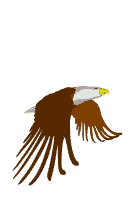Analyzing Literature Vocabulary List
Literary Terms--Tools we all should know:
Primary World
Secondary World
Plot
Characters
Theme
Point of View
Tone
Symbolism
Allusion
Style
Protagonist
Antagonist
Anti-hero
Major Character
Minor Character
Dynamic Character
Static Character
Flat Character
Round Character
in medias res
Flash back
Setting
Epiphany
Exposition
Rising action
Crisis
Resolution
Denouement
First person point of view
Stream-of-consciousness
Monolgue
Narrator
Naive Narrator
Third Person Narrator
Third Person Objective Narrator
Third Person Omniscient Narrator
Unreliable Narrator
Allegory
Study tips: I suggest that you don't simply print out this list as written. I listed the vocabulary words at random. I didn't do this just to be evil (really!); I hope that as you are looking up the definitions, you will think about ways to group similar concepts. Think of these words as a jigsaw puzzle--group similar types of pieces together, and you will solve the puzzle of the word meanings more quickly. For instance, protagonist and antagonist should be defined together under the topic of characters. What other terms should go under your 'Character" topic?
Similarly, if you outline the plot of a story, you can link the exposition, rising action, crisis, and finally the denouement and resolution. Look for unusual ways to remember your vocabulary. Try making up a scrolling screensaver, drawing a picture to illustrate topical terms, or making a "mind map" instead of a linear outline. Look for ways to link old vocabulary that you are familiar with to new vocabulary that you already know, and you will find it must easier to learn. Let me know if this isn't making sense, and I'll try and clarify.
Literary terms are the tools we use to analyze and interpret literature. They also prove indispensable to writers. Write the meanings of each vocabulary word
in two sentences or less, using your own words; cite literary work example if possible. You must have a firm grasp of the vocabulary of any subject in order
to do well on any credit by examination test.
Extra Credit (we'll give you a virtual pat on the back)
For those who want to delve deeper into worldview studies (caution--philosophy ahead!), try a few quotes from "Naming the Elephant: Worldview as a Concept," by James W. Sire. Do you agree or disagree with the following statements? Pick one or all. Cite examples from literature ("Pilgrim's Progress," "The Magician's Nephew," or other classics) and the Bible to illustrate your position.
"If all language is simply a power play , then so is the language by which Foucault explains language...Nihilism, however, does not stop intellectuals from writing, only from making sense." (page 40)
"Robert Redfield lists the self (divided into I and me) and the other,(divided into human and nonhuman). The human is further divided into young and old, male and female, us and them; the non-human is divided into God and nature. Finally, what Redfield calls "everyman's worldview" includes space and time, birth and death. My guess is that there are many more of the pretheoretical concepts to include, for example, meaning, oughtness, identity and contradiction." (page 78)
"In short, the pretheoretical consists of those notions and recognitions of relationships between notions that precede any thought at all. The pretheoretical is what we think with, not what we think about." (page 79)
In two weeks we will discuss the importance of the literary Term Vocabulary List, and elaborate on any terms that need further definition or explanation. We will finish up discussion and questions regarding worldview in The MagicianÃ’s Nephew, and begin to study the worldview of The Lion, the Witch and the Wardrobe. We will share information on How to Write an Essay: Discussion of Title, Introductory Paragraph, Opening Sentences, Paragraph Development, Transitional Sentences, Topic Sentences, Concluding Paragraphs.
In the meantime, I love meeting together, but I'd also appreciate more online feedback. We could all use the encouragement and it is interesting to read what you think.

1 Comments:
At 3:28 PM, Anonymous said…
Anonymous said…
Literary Terms Definitions
Primary World: The real world
Secondary World: The world crated by writers
Plot: The main story of a book or poem
Theme: Subject or Topic
Tone: The mood of a story of subject
Symbolism: Way of showing something
Allusion: Something implied
Style: One’s own way of writing
In medias res: Starts in the middle or hops from one thing to another in a story
Flashback: Jumping back to something that happens in the past
Setting: The time or the place of a story
Epiphany: A grasping of reality through a sudden realization
Exposition: Explaining something in the story
Rising Action: Where we find out about the conflict
Crisis: Something bad happens or challenge is revealed
Resolution: Something that is decided
Denouement: The outcome of a series of events
Allegory: A story depicting another story—symbolic
Characters: The people in a story
Point of View: Standpoint from which something is evaluated
Protagonist: main character or good guy
Antagonist: the bad guy who doesn’t like the main character
Anti-hero: a protagonist who is lacking in heroic qualities
Major character: An important character
Minor character: A character of little importance
Dynamic character: A changing character
Static character: A character that changes little
Flat character: Not very developed
Round character: Interesting and fully developed character
Stream of Consciousness: A view of a character’s mind
First person point of view: The narrator talking about himself
Monologue: Only one narrator telling a story
Narrator: Someone telling a story
Naïve narrator: A narrator that doesn’t know everything about the story he is telling
Third person narrator: A narrator that is not a character in the story
Third person objective narrator: a Narrator that can’t tell anything about what a character is thinking, only what they are doing
Third person omniscient narrator: all-knowing narrator
Unreliable narrator: A mentally unstable narrator
Post a Comment
<< Home